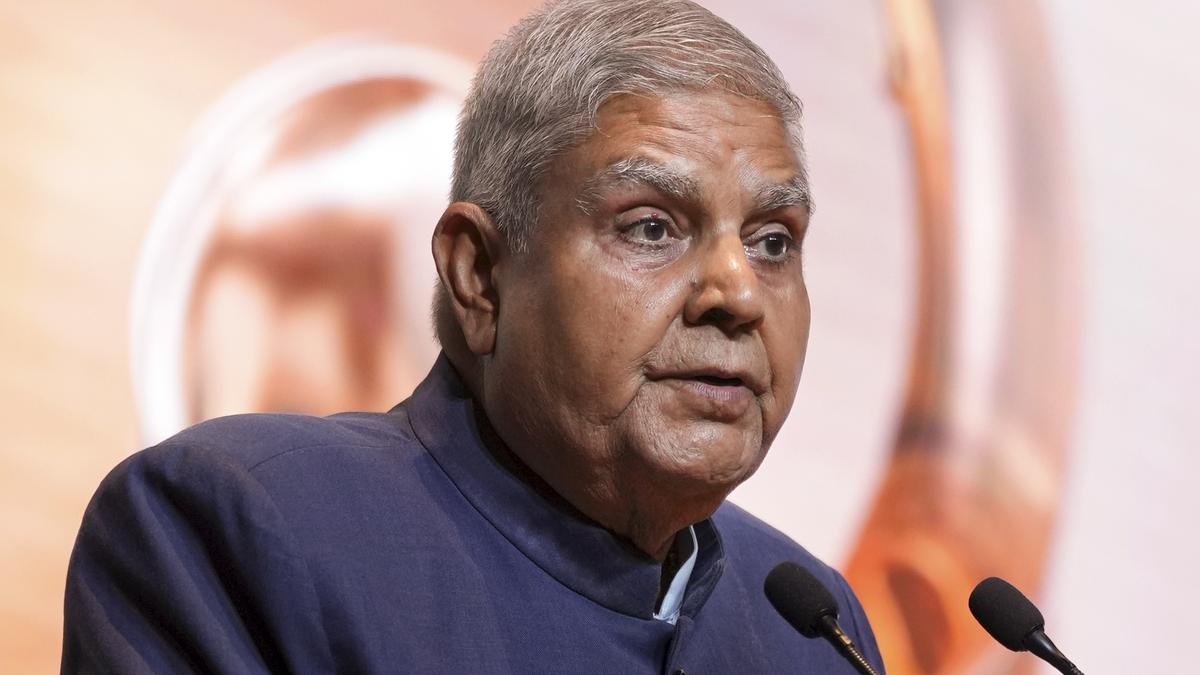Now Reading: Jagdeep Dhankhar: Advocate for Farmers and Judicial Reforms
-
01
Jagdeep Dhankhar: Advocate for Farmers and Judicial Reforms
Jagdeep Dhankhar: Advocate for Farmers and Judicial Reforms

Quick Summary:
- Vice-President Jagdeep Dhankhar has resigned after serving 3 years in office,marking an unprecedented move.
- During his tenure, Dhankhar garnered attention for controversial statements inside and outside Parliament:
– Criticized judicial corruption and teh Supreme Court’s rejection of the National Judicial Appointments Commission (NJAC), questioning parliamentary silence on the matter.
– Called for revisiting the K. Veeraswami Judgement concerning applicability of corruption laws to higher judiciary members.
– Advocated accountability and caution in how MPs exercise their parliamentary privileges.
- Engaged deeply in several philosophical debates:
– Urged resilience and respect for differing views while warning against arrogance in public life during a Rajya Sabha Internship Program address.
– Defended farmers’ rights by criticizing government delays in addressing protests and urging reforms like statutory Minimum Support Price (MSP).
– Spoke strongly about Sanatana Dharma’s cultural significance amidst ongoing debates since DMK leader Udhayanidhi Stalin’s comments sparked controversy.
- Images accompanying this article include Dhankhar participating at various formal events.
Indian Opinion Analysis:
Jagdeep Dhankhar’s resignation as Vice-President comes as a rare political advancement for India, signaling potential shifts or disagreements within governance norms. His tenure was marked by bold stances on judicial accountability, agricultural policy reform, and societal values rooted in Sanatana Dharma-all subjects of national importance. Each position reflects his willingness to challenge convention while staying firmly vocal on sensitive issues like governance integrity.
For India,such outspoken leadership can invite scrutiny over boundaries between constitutional roles like those of legislature,judiciary,and executive branches. His sharp rebukes regarding parliamentary inertia towards Supreme Court decisions exemplify deeper democratic tensions that may need addressing. Meanwhile, his calls to prioritize farmers’ welfare could resonate amid broader concerns around agriculture sector sustainability-a critical economic backbone.
Dhankhar’s emphasis on humility over arrogance raises introspections into diplomatic conduct within politics today-a sentiment valuable across party lines despite polarization risks from cultural debates over Sanatana Dharma or ideological divides seen recently at farmer agitations nationwide.Future implications depend heavily on how successors balance strong individual agency informed by constitutional values while leaving space open toward reconciliation dialog with citizens alike being core!






















